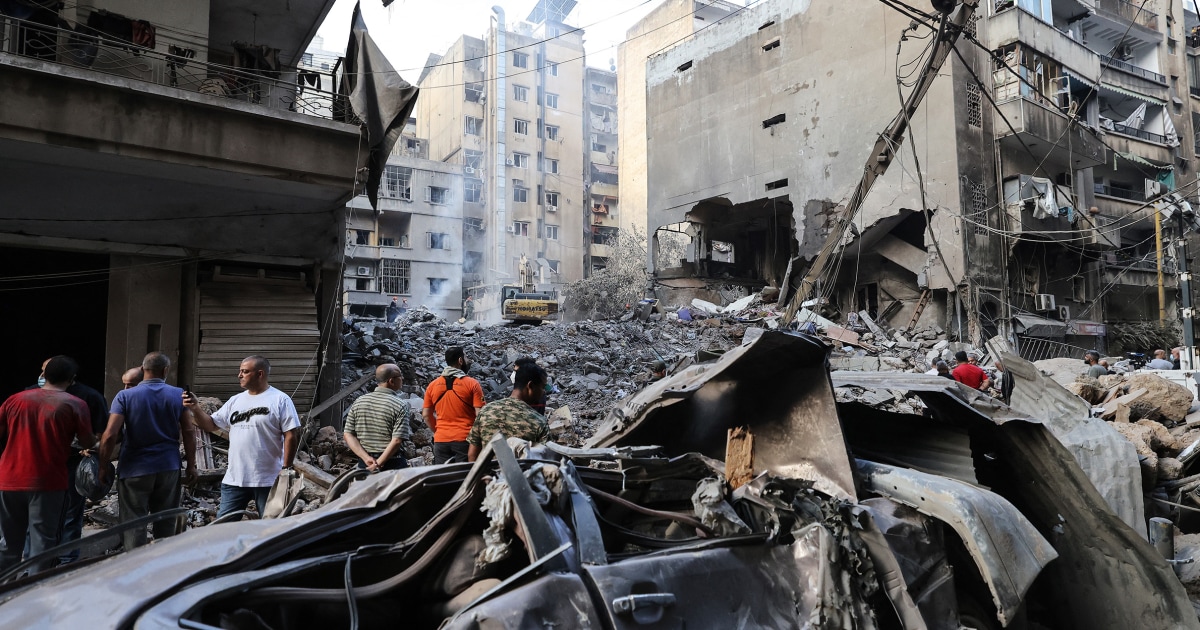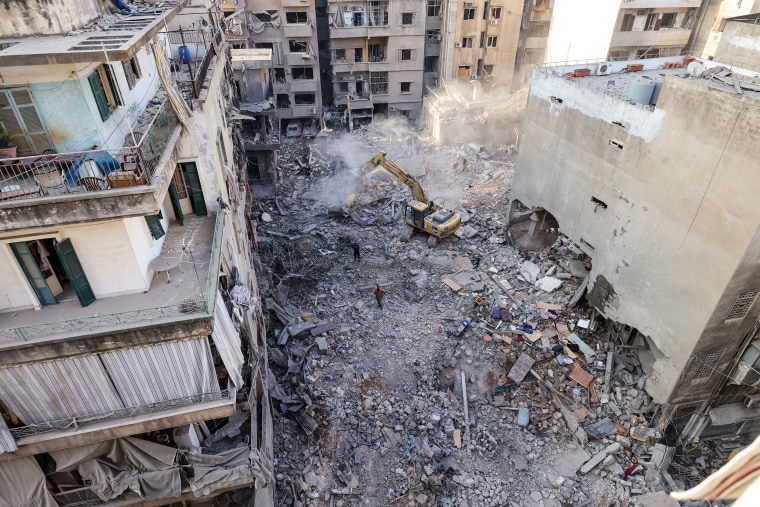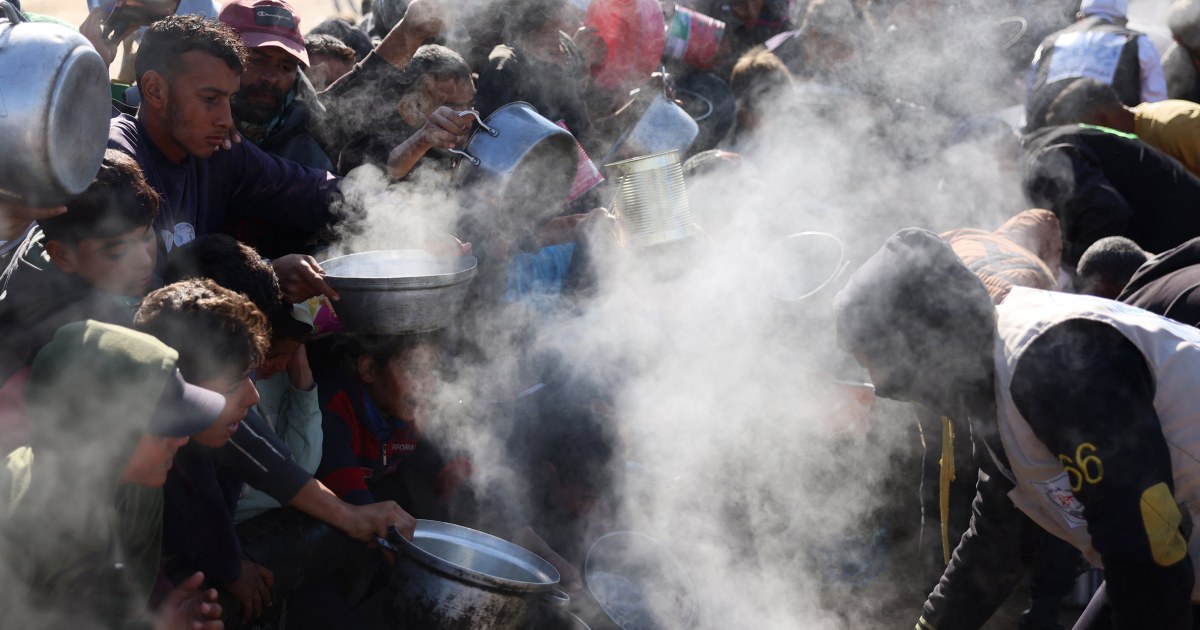World
Live updates: Beirut reels from deadly Israeli strike; Iran warns Arab states not to help Israel attack

Israel faces mounting international condemnation over attacks on U.N. peacekeeping force
Israel is facing growing international condemnation over repeated attacks on the U.N. Interim Force in Lebanon, including an attack that left two soldiers injured and hospitalized.
“The international community is obligated to ensure that Israel abides by the international law,” the Turkish foreign ministry said in a statement, adding it contributes to the UNIFIL Maritime Task Force with one frigate and five personnel at the UNIFIL headquarters.
China also expressed “grave concern and strong condemnation” at a foreign ministry briefing this morning.
Hezbollah media chief postpones public appearance
Hezbollah’s media office has reportedly postponed a planned public appearance by its chief, Hajj Mohamad Afif, following Israeli attacks on Lebanon’s capital, Beirut.
Afif was expected to hold talks with the minister information, the minister of culture and the speaker of the National Media council, with a news conference scheduled to take place after.
But the media office said in a statement the news conference would be rescheduled “to a time to be determined later.”
Israel accused of targeting U.N. peacekeepers as strikes on Gaza and Beirut intensify
The United Nations has accused Israel of attacking its peacekeeping force on the Lebanese border. The accusation came as Israeli airstrikes killed dozens of people in Gaza’s Deir Al-Balah and Lebanon’s capital, Beirut.
UNIFIL relocated 300 peacekeepers to larger bases due to safety concerns
Hundreds of peacekeepers with the United Nations Interim Force in Lebanon have had to be moved to larger bases due to safety concerns, UNIFIL has said.
Addressing the U.N. Security Council, UNIFIL chief Jean-Pierre Lacroix said the force relocated at least 300 peacekeepers to larger bases earlier this month due to safety concerns amid Israeli strikes.
And in the days since, Lacroix warned that UNIFIL forces were “increasingly in jeopardy” and forced to remain at their bases due to the repeated strikes on and around UNIFIL sites, including a recent attack that left two UNIFIL peacekeepers injured and hospitalized.
Still, he said peacekeepers were determined to remain at their posts, with countries contributing to the force agreeing to keep deploying thousands of peacekeepers between the Litani River in the north and the Blue Line in the south, which marks the U.N.-recognized border between Lebanon and Israel, despite the risks.
IDF says it killed head of Islamic Jihad’s network in Nur Shams
The Israeli military says its forces have killed the head of the Islamic Jihad militant group’s network in Nur Shams, a Palestinian refugee camp in the the Tulkarm Governorate in the occupied West Bank.
The IDF said it killed Muhammad Abdullah in a joint operation with the Israel Security Agency, or Shin Bet, in an airstrike in the area of Tulkarm. It said a second militant was also killed, but did not identify them.
Abdullah was the successor of Muhammad Jabber, head of the Islamic Jihad network in Tulkarm who was killed by Israeli forces in August, the Israeli military said. The IDF said Abdullah had been responsible for “numerous” attacks and had deployed explosives against IDF soldiers in the area of Tulkarm.
The militant group did not comment.
Iran is warning Arab nations not to assist Israel’s retaliatory attack
Iran has been urging Arab nations not to allow Israel to use their airspace as part of any retaliatory strike, two Gulf diplomats have told NBC News.
The diplomats asked not to be named due to the sensitivity of the issue.
Iran says countries that help Israel in such a way during any response to Tehran’s ballistic missile barrage could potentially become part of a war, one senior diplomat said.
Iran’s president and its foreign minister have been meeting with Gulf countries including Qatar and Saudi Arabia this week. Many Arab nations such as Jordan and the United Arab Emirates host U.S. bases and oil instillations vital to the world economy. The sentiment expressed by Iran is raising fears in the region that these could potentially become targets.
“The Gulf Cooperation Council is not interested in being caught in a cross fire,” one diplomat told NBC News. “Our focus has been on de-escalation.”
A second diplomat told NBC News that it appeared unlikely that any Arab nation would agree to allow their airspace to be used by the Israelis for a strike on Iran.
Iran’s message to Arab nations through diplomatic backchannels was first reported by Reuters.
Early photos reveal scene of an Israeli strike on Beirut


People gather at the site of an Israeli air strike in the Basta neighborhood of Beirut this morning, where residential buildings lay in ruins as excavators worked to remove rubble.












